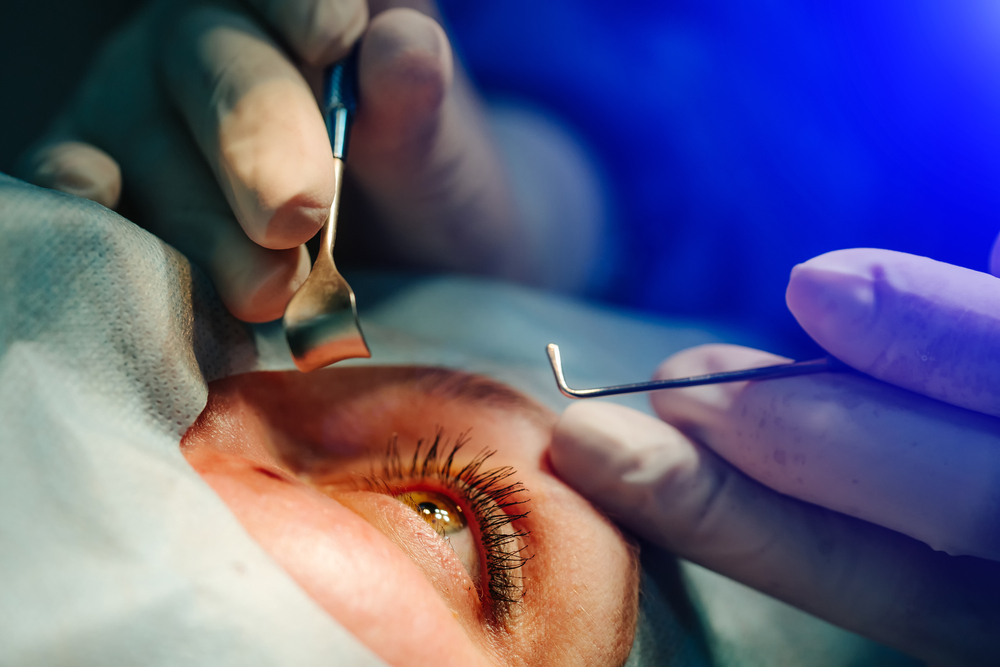
Vision correction is a crucial aspect of maintaining overall eye health and improving quality of life. Whether you struggle with nearsightedness, farsightedness, or astigmatism, LASIK can potentially provide a solution to reduce or eliminate your dependence on glasses or contact lenses.
What is LASIK and How Does it Work?
LASIK is a type of refractive surgery that uses a specialized laser to reshape the cornea, the clear, front part of the eye. By precisely reshaping the cornea, LASIK can correct common vision problems such as:
Nearsightedness (Myopia): Caused by a cornea that is too steeply curved, resulting in light focusing in front of the retina.
Farsightedness (Hyperopia): Caused by a cornea that is too flat, resulting in light focusing behind the retina.
Astigmatism: Caused by an irregularly shaped cornea, resulting in distorted or blurred vision.
During the LASIK procedure, your eye surgeon uses a specialized laser to remove microscopic amounts of corneal tissue, reshaping the cornea to improve its focusing ability. This, in turn, reduces or eliminates your dependence on corrective lenses, providing you with clearer, sharper vision.
Understanding Who is a Good Candidate for LASIK
Determining whether you are a good candidate for LASIK involves a comprehensive evaluation of your overall eye health and vision. Here are some of the key factors that ophthalmologists consider when assessing LASIK candidacy:
Stable Vision: Your vision prescription should have been stable for at least 12 months, with minimal changes in your eyeglass or contact lens prescription.
Corneal Thickness: Your corneas must be thick enough to safely undergo the LASIK procedure without compromising their structural integrity.
Pupil Size: Your pupil size in low-light conditions should not be excessively large, as this can increase the risk of certain side effects, such as glare or halos.
Refractive Error: Your prescription for nearsightedness, farsightedness, or astigmatism should fall within the range that LASIK can effectively treat.
Overall Eye Health: You should have healthy eyes, free from conditions such as dry eye, keratoconus, or other corneal disorders that could affect the outcome of LASIK.
Age: Most eye surgeons recommend LASIK for individuals between the ages of 18 and 65, as the eyes tend to be more stable during this time.
Pregnancy and Nursing: If you are pregnant or nursing, it's generally recommended to wait until after you have finished breastfeeding to consider LASIK, as hormonal changes can affect your vision.
Determining is LASIK is Right for You
To determine if LASIK surgery is right for you, it's crucial to schedule a comprehensive eye examination and consultation with an optometrist. During this evaluation, your eye care provider will thoroughly assess your overall eye health, measure your refractive errors, and determine if you are a suitable candidate for LASIK. The evaluation process typically includes the following steps:
Medical History Review: Your eye care provider will ask about your medical history, any existing eye conditions, and any medications you are currently taking.
Vision Assessment: They will measure your current vision, including your level of nearsightedness, farsightedness, and astigmatism.
Eye Measurements: Your provider will use advanced imaging technology to measure the curvature, thickness, and overall health of your corneas.
Pupil Evaluation: They will assess the size of your pupils in various lighting conditions to ensure they are within the appropriate range for LASIK.
Dry Eye Assessment: If you experience symptoms of dry eye, your provider will evaluate the severity and determine if it could impact the LASIK procedure or recovery.
Based on the results of this comprehensive evaluation, your optometrist will be able to determine if you are a good candidate for LASIK and discuss the potential risks and benefits of the procedure. They can also provide guidance on alternative vision correction options if LASIK is not recommended for your specific needs.
Schedule Your Consultation with Annandale EyeCare Today
Determining whether you are a good candidate for LASIK is a crucial step in achieving your vision correction goals. By understanding the factors that contribute to LASIK candidacy and undergoing a thorough evaluation with your optometrist, you can make an informed decision about whether this life-changing procedure is right for you.
If you're interested in exploring LASIK surgery, schedule a consultation with Annandale EyeCare. Visit our office in Annandale, Virginia, or call (703) 941-4111 to learn more about your personalized vision correction solutions today.









